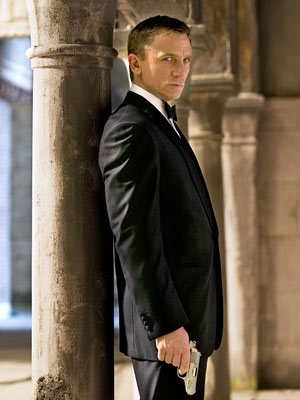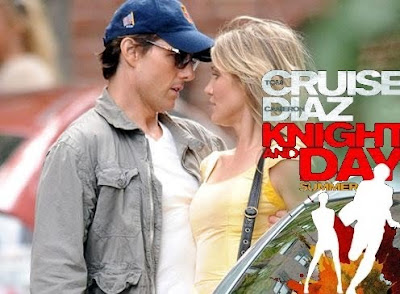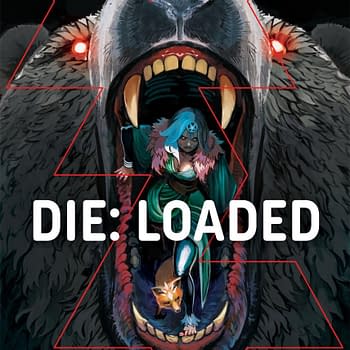Posted in: Look! It Moves! by Adi Tantimedh | Tagged:
Look! It Moves! #52 by Adi Tantimedh – Not A Spy
One full year of columns from Bleeding Cool's resident screenplay reader Adi Tantimedh. And this week.. spies! Or the lack of them…
While listening to BBC Radio 4's adaptation of John le Carré's final George Smiley novel THE SECRET PILGRIM, I was reminded of a question nagging at me for ages, namely the huge gulf between authentic spy stories and the spy genre in pop culture.
In short, the vast majority of spy movies, TV shows and comic books we see are complete and utter bollocks.
I suppose deep down everyone knows it, but we've gotten to the point where most punters view the spy genre in movies, TV and comics as being about going to glamourous foreign countries, shagging the local birds and shooting baddies, all the while cracking the kind of snarky remark that only the most obnoxious troll in real life would think to make. What strikes me is that this perception of the spy genre has become so ingrained that its fans demand that is how the genre should be all the time, as witnessed by the outcry over the lack of glamour and wisecracks in the revamped Daniel Craig James Bond movies which moved the franchise back to darker, grittier terrain, even though it still wasn't anywhere close to any real authentic spy stuff.


I know I've written a column ages ago that touched on this before, but the current proliferation of spy pop culture made me think about it again.
 It was, after all, the James Bond movie from the Sixties and TV shows like THE AVENGERS that established the Pop Spy genre: glamour, sex and shooting being the main ingredients. Anything and everything else is icing. But when you think about it, Movie James Bond isn't really a spy. Secret agent, maybe, but spy, not really. He seldom went in search of intelligence and generally just went around killing people in spectacular fashion. At best, Bond is a saboteur. At worst, he's a hitman. Even Daniel Craig's Bond said something to that affect in CASINO ROYALE in a minor concession to genre self-awareness from the screenwriters. This perception of the spy has persisted for over forty years, all the way to the recent video game ALPHA PROTOCOL.
It was, after all, the James Bond movie from the Sixties and TV shows like THE AVENGERS that established the Pop Spy genre: glamour, sex and shooting being the main ingredients. Anything and everything else is icing. But when you think about it, Movie James Bond isn't really a spy. Secret agent, maybe, but spy, not really. He seldom went in search of intelligence and generally just went around killing people in spectacular fashion. At best, Bond is a saboteur. At worst, he's a hitman. Even Daniel Craig's Bond said something to that affect in CASINO ROYALE in a minor concession to genre self-awareness from the screenwriters. This perception of the spy has persisted for over forty years, all the way to the recent video game ALPHA PROTOCOL.

Here's the thing: a bloke who charges in guns blazing and killing everyone before he blows the place to buggery is not a spy – he's a commando. Spying is not really about killing people, it's about gathering information, especially classified and hard-to-obtain information, and doing it without getting detected or, preferably, the stolen information being missed. Someone who has worked in intelligence once told me that most spies don't carry guns. For those that do, the moment a spy has to pull a gun is an indication of failure, the mission is blown. But the gun-toting operative is an adolescent power fantasy for so many people to the point where they refuse to let it go in favour of something more sophisticated, and I keep wondering why.
At the more grown-up, literary end of the genre, you have Graham Greene and John le Carré, who see the world of spying and espionage as an existential purgatory populated by dysfunctional and broken people, where being a spy is a state of mind, a state of being that casts a pall over not only their lives but those of their friends and families even as they're slaves to increasingly murky ideological machinations. This is the spy genre as a tool for examining the human condition and the existential challenges of living under ideological controls, and the cost of lying, deception and betrayal. But obviously, writing this type of spy story is a lot of hard work and not always fun, so screenwriters tend to stick to what they know, which is the James Bond model established in the Sixties. I have a feeling the world of espionage has been very different from the Cold War model since the Berlin Wall came down, but there has been very little in fiction that deals with what's been going on in the shadow world ever since, no real research has been done for novels or screenplays, and as a result, the genre has stayed stuck in the 60s Cold War model, even in shows like 24 when it deals with stereotypical swarthy dark-skinned terrorists out to kill America before lazily settling back to having the Russians as the baddies.


Yet even when the studios and networks try to make a less frivolous attempt, they're still stuck in the Cold War. SALT falls back on the clichéd old notion that the Russians are still our enemies and that they would actually be crass enough to want to assassinate the US President when everyone would just accuse them of doing it anyway. The upcoming remake of RED DAWN (not a spy movie, but this is part of the point I'm getting at) is going to feature the Chinese invading America when it makes no political or strategic sense of them to do so (the same applies to the Russians in the original 1980s version, really). America seems to have completely missed the fact that China isn't even really communist anymore. I guess it's still profitable for Hollywood to push beliefs that would only really be held these days by, well, idiots.
The rest of the time, it's still pop spies like KNIGHT AND DAY, where Cameron Diaz' Mr. Right turns out to be superspy Tom Cruise. We seem to have crossed a certain threshold of frivolity with the spy genre here, into a zone that Hollywood seems most comfortable staying in, devoid of politics and full of only explosions and fun. It's not even about catching a feeling anymore, it's about making the audience feel good. God knows what Hollywood's upcoming adaptation of le Carré's TINKER, TAILOR, SOLDIER, SPY is going to be like. Probably as good as their remake of STATE OF PLAY, which is not very good at all.


It's telling that the only spy franchise that's felt like an advance in the evolution of the genre has been the Bourne movies, no? Even more telling is the lack of more movies in the same vein, but then the overall message of Bourne is that the government is not on our side while the mainstream of the genre is that the government is the good guys and should always be trusted in the end.
With nearly all the US networks and cable stations developing or about to put out more spy shows – RUBICON, COVERT AFFAIRS, UNDERCOVERS and several more in the works – it seems there's a public or cultural hunger for the genre right now, but the network and movie studios are only prepared to make one type of the story for the genre: pop escapism that requires no real thought or insight. AMC's upcoming series RUBICON, with its chilly existential exploration of code-breaking, conspiracy and paranoia, is inspired by THREE DAYS OF THE CONDOR, which was from the 1970s, but at least it's trying to do something different, but from what I've seen of the pilot, it's too gloomy and self-important to be truly interesting.


Many of them really aren't about politics at all, but a backdrop for exploring 20something and yuppy preoccupations: staving off boredom and the banality of the salaried and middle-class life and escaping into a glamourous adventurous lifestyle of expensive clothes, expensive gadgets, expensive holidays, expensive hotel rooms, expensive food… and the permission to kill bad guys without remorse or consequence. That's the face of the genre currently being sold to what they think is an eager buying public.
This is a shame, as the spy genre is a great storytelling engine for exploring the secret workings of the world and how they affect everyone, but it seems in the interests of earning profits for the entertainment industry and keeping the public docile with comic book fantasies, there's no real desire to do so.
And the realities of the spy are as far away from our eyes as ever, still hidden in the shadows.
Totally lacking a dead-drop at lookitmoves@gmail.com
© Adisakdi Tantimedh












